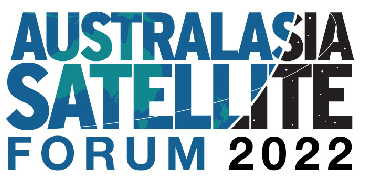|
LeoLabs Wins Contract Award
to Support Japan Air Self Defense Force with
Commercial Space Domain Awareness
May 24, 2022
LeoLabs, Inc., announced a
multimillion-dollar award to provide data and services
for the Japan Air Self Defense Force (JASDF). The
agreement offers Japan access to the largest set of
actionable insights in existence for tracking satellites
and orbital debris in low Earth orbit (LEO), all
generated from LeoLabs' global network of phased array
radars. LeoLabs will deliver its LEO data and services
platform and a full set of training to empower JASDF
operators to utilize a range of data and tools,
including tracking and monitoring, collision avoidance,
and other services.
"We are deeply honored to have this
opportunity to work with the Japan Ministry of Defense,"
said Dan Ceperley, CEO and LeoLabs Co-Founder. "Within
the commercial SSA world for low Earth orbit (LEO),
LeoLabs is the sole end-to-end supplier of radar
infrastructure and scalable services that address the
changing threat landscape and challenges to
sustainability. Our radar network already generates the
most LEO observations in the world and, in fact,
produces more than any of the government SSA networks.
As our sensor network continues to proliferate around
the world, we are rapidly investing in analytics and
tools that will scale to deliver timely updates on
critical events in LEO. These events include collisions,
breakups, maneuvers, new launches, and re-entries. We
will bring all these capabilities to JASDF."
The contract award defines a
specific set of state-of-the-art tools and data from
LeoLabs that will serve JASDF operational requirements
in LEO and will be delivered as a subscription service.
Examples of the scope of the services include:
LeoLabs will provide access to
these services and associated training to immediately
augment the space domain awareness (SDA) capabilities at
the Japan Ministry of Defense.
Japan's Ministry of Defense has
awarded LeoLabs this contract through ITOCHU Aviation
Co., Ltd, a wholly owned subsidiary of ITOCHU
Corporation - LeoLabs' established trading partner.
LeoLabs and ITOCHU are mutually committed to growing
their partnership in the future and ensuring the success
of the JASDF.
Low Earth Orbit is emerging as the
commercial and national security focus in space. Rapid
deployment of new satellite constellations, the demand
for innovative services from imaging to broadband to IoT
(internet of things), and the billions of dollars of new
investment in space-based infrastructure are redefining
a domain shared by governments, space agencies,
regulators, commercial operators, and space insurance.
Against this backdrop of
unprecedented opportunity are two challenges critical to
investment and the long-term viability of LEO. The first
is the need to develop LEO sustainably by addressing the
threat posed by space debris. Approximately 250,000
dangerous pieces of orbital debris have gone untracked
by government legacy systems that can no longer keep
pace with increasing risks to satellite constellations.
Sustainability is not just an arena for operators to
address, but also for defense and regulators to
establish international best practices, set standards,
and define rules of behavior.
A second challenge critical to the
long-term viability of LEO is keeping it open and
secure. As the number of private space enterprises and
space-faring nations continue to grow, so does the need
to track and make transparent the full range of events
that threaten an open space environment.
"The single greatest challenge to
addressing both the sustainability and security threats
in LEO is solving the "data deficit", said Dan Ceperley,
LeoLabs CEO. "This is true for Japan, and for all
space-faring nations. The number of assets in LEO
doubled last year, will double again this year, and is
expected to grow 25x in the next five years. LeoLabs is
already the largest provider of data for LEO today, and
we're uniquely positioned to expand this lead as we
execute on our constellation of radars. Our current
network includes six radars located at sites in Alaska,
Texas, New Zealand and Costa Rica. By the end of this
year, we will add four more radars at additional sites
in Australia and the Azores in the Atlantic. Our network
will grow from there."
Ceperley continued, "The legacy,
government-built SSA infrastructures and sensors of the
past simply cannot scale to track the new levels of LEO
activity, and they have no path to get there,
economically or in a timely manner. Single radars cannot
keep pace with the requirements for fast revisit times,
or highly accurate tracking. The only way to provide
adequate coverage and responsive defense is with a
large, distributed network of radar sensors that provide
an "always-on" stream of data. Our LeoLabs commercially
driven infrastructure is the only viable and scalable
way to address this "data deficit", and that's what the
JASDF will be able to leverage under our new contract."
ASF
2022
REGISTER NOW!

14 & 15 June 2022
|
